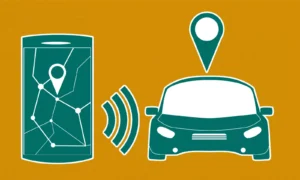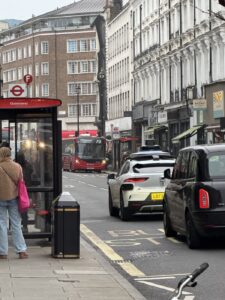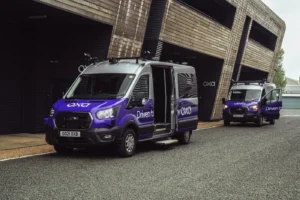The delivery company Hermes and vehicle maker Ford are teaming up to conduct trials with ‘hidden’ drivers to help understand how people are likely to respond to autonomous delivery vehicles.
The specially modified Ford Transit features a number of sensors designed to mimic the look of a fully self-driving vehicle, while a ‘human car seat’ allows a concealed human driver to operate the vehicle in a way that leads others to believe no-one is at the wheel.
Pedestrian couriers will be responsible for loading and unloading the van, aided by a smartphone app that allows the vehicle to be hailed to their location and the cargo doors to be unlocked.
As reported on the SMMT website, the two-week trial, beginning in Oxford, will help Hermes establish how best to structure their teams to work with driverless vehicles, while Ford will use the study to investigate ways of communicating the intentions of a self-driving vehicle to other road users, particularly pedestrians and cyclists.
Richard Balch, Ford of Europe Director, Autonomous Vehicles and Mobility, said, “As we plan to bring autonomous vehicles to the roads, it is important that we focus not only on enabling the technology, but on enabling our customers’ businesses. Clearly, there is no better way to identify how they may need to adapt than to experience those processes in real life.”
Lynsey Aston, Hermes Head of Product, Innovation and Onboarding, added, “We’re excited to collaborate with Ford on this proof-of-concept trial, which is all about understanding the potential for autonomous vehicles and if they have a role in delivery in the longer-term future. We’re constantly innovating to incubate and then explore concepts like this, and we look forward to the initial findings, which will no doubt be useful on an industry-wide level.”
(Picture – Ford)
























